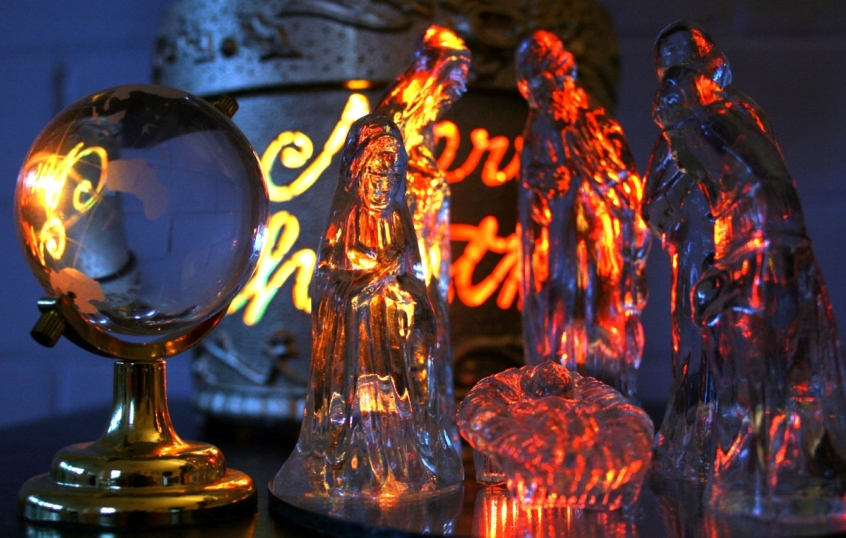Let's set the nativity scene. We've got Mary, we've got Joseph. Jesus has just arrived. There are a few chickens, maybe a couple of shepherds. There's a star above the stable. Then the shepherds arrive, followed quickly by the three wise men. You can picture it. One of the most memorable scenes in the Bible.

So the three wise men...
I'm going to stop you there. That's the first hiccup. In every school play there are three wise men, but in reality we have no idea how many travelled to see Jesus. Three is just a guess because they gave three gifts of gold, frankincense and myrrh. It could have been that there were two men who were just pretty generous, or that one wise man showed the rest of them up because gift giving was his love language. And before you ask, their names were not Balthazar, Caspar and Melchior. These are traditional names of Western Christianity; if you grew up in the Eastern tradition you would have known them as Larvandad, Gushnasaph and Hormisdas.
OK, so I'll refer to them as the (unnamed) wise men, or can I say kings?
Again, the traditional nativity scene doesn't serve us well here. All the story books talk about the three wise men or the three kings, but they are mistaken. Matthew's Gospel actually refers to the unspecified number of men as "magi". Sounds a bit like magic? Yes: the English word for magician comes from the same root, the Greek magos. The term refers to a priestly caste of Zoroastrianism, a Persian religion founded in the 6<sup>th century BC. The wise men were likely from this caste and would have been experts in astrology. This has often led to an association with the occult, but in fact Zoroastrianism was opposed to sorcery. Even so, the translators of the King James Bible saw the term to be unsavoury and translated magi as Wise Men.
Right, so the undetermined number of magi arrived at the stable along with the shepherds...
No, no. Again, the traditional nativity scene has set out to confuse us once again. In fact, the magi didn't visit Jesus as a baby at all – at least it's unlikely they did. If Christmas cards had their way the magi would be alongside the shepherds gathered around the manger. In fact, the magi appeared at least a year later, because it was their arrival that triggered Herod's horrific massacre of infants under the age of 2. They didn't visit the stable, either – by that time the young family had moved to a house, where they received the magi, according to Matthew 2:11.
So when they finally got there, did they even give the baby (or toddler) gold, frankincense and myrrh?
Yes! This is one element of the story actually found in the Gospel account. According to Matthew, the magi gave the young Jesus three gifts: gold, frankincense and myrrh, each one holding particular significance. Some people hold that they are simply ordinary offerings given to a king. Myrrh was used as anointing oil, frankincense as a perfume and gold was just valuable.
There is another theory, giving each gift a spiritual weight directly related to Jesus' life, ministry and death: Gold as a symbol of kingship on earth, frankincense as a symbol of deity and myrrh as a symbol of death. This was first propagated by the Church Father Origen and is alluded to in the Carol "We Three Kings".
So, the nativity scene looks a little different. The Magi wouldn't have been there to see the newborn baby Jesus, but they would have travelled from the East in order to celebrate the birth of the Jewish Messiah, bringing him gifts fit for a King.













